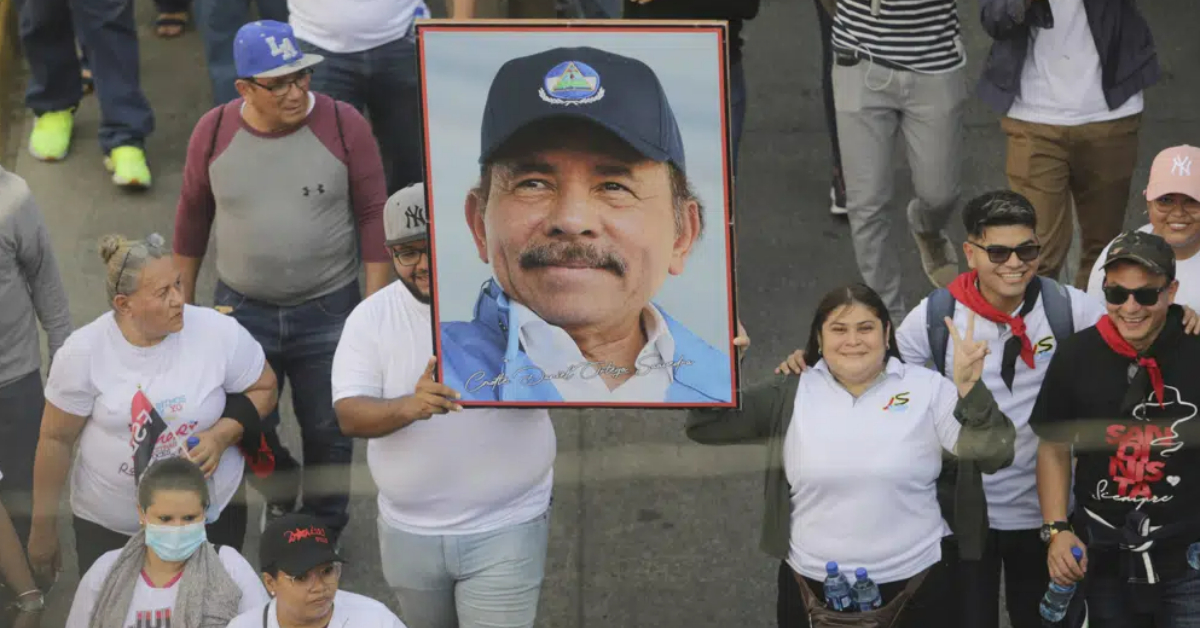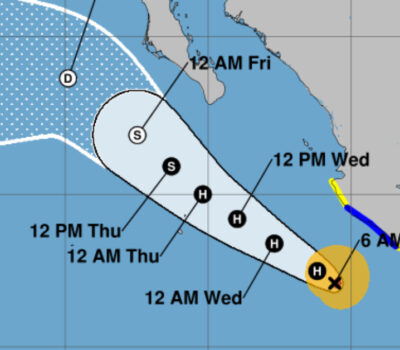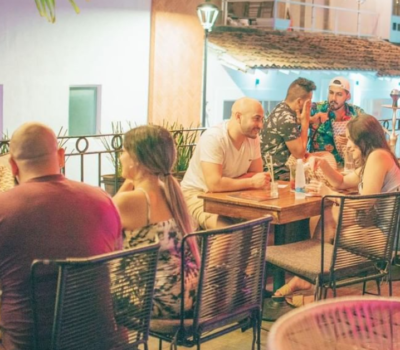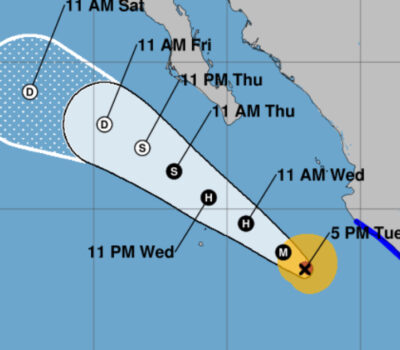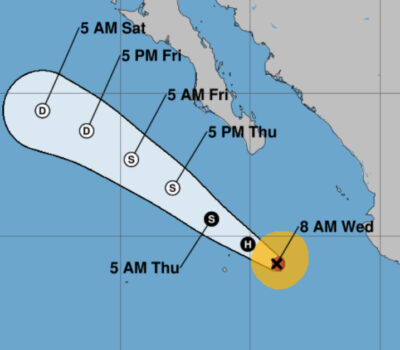MEXICO CITY (AP) — Last week Nicaraguan President Daniel Ortega packed off 222 political leaders, priests, students, activists and other dissidents to the United States, their release long demanded by the international community.
Shortly after, Ortega’s government voted to strip the former prisoners of Nicaraguan citizenship. Analysts, legal experts and human rights groups are calling it a political ploy but also a violation of international law that they say is unprecedented — at least in the Western Hemisphere — in terms of scale and impact.
The expulsion comes amid a broader push by the Ortega government to quash political dissent dating back to 2018 anti-government street protests that were met by a violent response from Nicaraguan security forces.
Ortega has called his imprisoned opponents “traitors” and maintains they were behind the protests, which he claims were a foreign-funded plot to overthrow him. Tens of thousands of Nicaraguans have fled the government’s crackdown.
The incarceration of government opponents became a sticking point internationally, particularly with the administration of U.S. President Joe Biden, which used their detention to justify sanctions on the Central American nation.
The release of the prisoners was, in part, a tactic to “minimize the public costs of his repression,” particularly in the eyes of the international community, said Ivan Briscoe of International Crisis Group, a nonprofit research group focused on resolving conflicts around the world.
“He would prefer to revert to a steady, low-level authoritarian government in which there are no, perhaps none of the more visible forms of abuses, but continuing political control,” Briscoe said.
U.S. State Department spokesman Ned Price told reporters in Washington on Monday that the release of the prisoners was considered “a constructive step,” and is something Biden officials have said would open a door to a dialogue between the two countries.
But Ortega’s Congress simultaneously voting to strip the citizenship of the expelled prisoners is drawing criticism.
“This was in no way a panacea for the many concerns we have with the Nicaraguan regime, including the repression and oppression it continues to wield against its own people,” Price said.
While Nicaragua’s Congress still needs to carry out a second vote to approve the constitutional change to formally strip those expelled of their nationality, it was unanimously approved in the initial vote. Ortega’s firm hold on power leaves any other outcome highly unlikely.
“I think the message is very clear: On my land, there will be no opposition,” said Briscoe.
Peter J. Spiro, an international law professor at Temple University, and others say stripping away citizenship in this context violates a treaty adopted in 1961 by countries in the United Nations, including Nicaragua, which sets clear rules meant to prevent statelessness.
The treaty states that governments cannot “deprive any person or group of persons of their nationality on racial, ethnic, religious or political grounds.”
Spiro noted there are some circumstances when governments can terminate citizenship, such as ending nationality for someone who acquires citizenship in another country when the first nation prohibits dual citizenship. But, he said, ending citizenship is not allowed when it is used as a political weapon.
“This is banishment, and banishment is antithetical to modern conceptions of human rights,” he said.
Spain has offered its citizenship to the 222 exiles, while the U.S. granted the Nicaraguans a two-year temporary protection.
But many of the former prisoners in the United States are left in a state of legal and mental flux, said Jennie Lincoln, an academic in contact with many of the exiles.
“Psychologically they are stateless,” Lincoln said. “They’re in shock, going from one day being in prison, then hours later on a plane to the United States. Imagine the psychological impact of that, and then being stripped of your citizenship.”
The move by Ortega is unprecedented in the Western Hemisphere, in both its size and reach, according to analysts and legal experts.
Previous cases of states in the region moving to strip citizenship of political actors have always been limited in scale.
In Chile in the 1970s, the Pinochet dictatorship stripped the citizenship of Orlando Letelier, who was living in exile where leading opposition to political repression in the South American nation.
Spiro, at Temple University, said Ortega’s action does bear some resemblance to what has been done in Bahrain, in the Middle East.
Over the course of years, the Bahrain government has stripped hundreds of human rights and political activists, journalists and religious scholars of their nationalities, leaving them stateless. In 2018, a court stripped 115 people of their citizenship in one mass trial on accusations of terrorism, according to Human Rights Watch.
“But Ortega’s move is more high-visibility,” Spiro said.
Experts are especially concerned about Roman Catholic Bishop Rolando Álvarez, a vocal critic of Ortega who refused to board the plane to the U.S. with the other prisoners.
He told those close to him that if he got on the plane, it would be like admitting to a crime he never committed.
Shortly after, Álvarez was sentenced to 26 years in prison — famous for their poor conditions — and stripped of his citizenship within Nicaragua, something sharply condemned by State Department officials.
It left him in a legal limbo more extreme than his counterparts in the U.S.
Until now, no one has been able to contact Álvarez, nor confirm for themselves where he is or if the he is safe, said a person close to Álvarez, who asked not to be quoted by name out of fear of reprisal.
“From a legal point of view, his future looks completely grim, and he knows it,” the man said.
MEXICO CITY (AP) — Last week Nicaraguan President Daniel Ortega packed off 222 political leaders, priests, students, activists and other dissidents to the United States . . .

